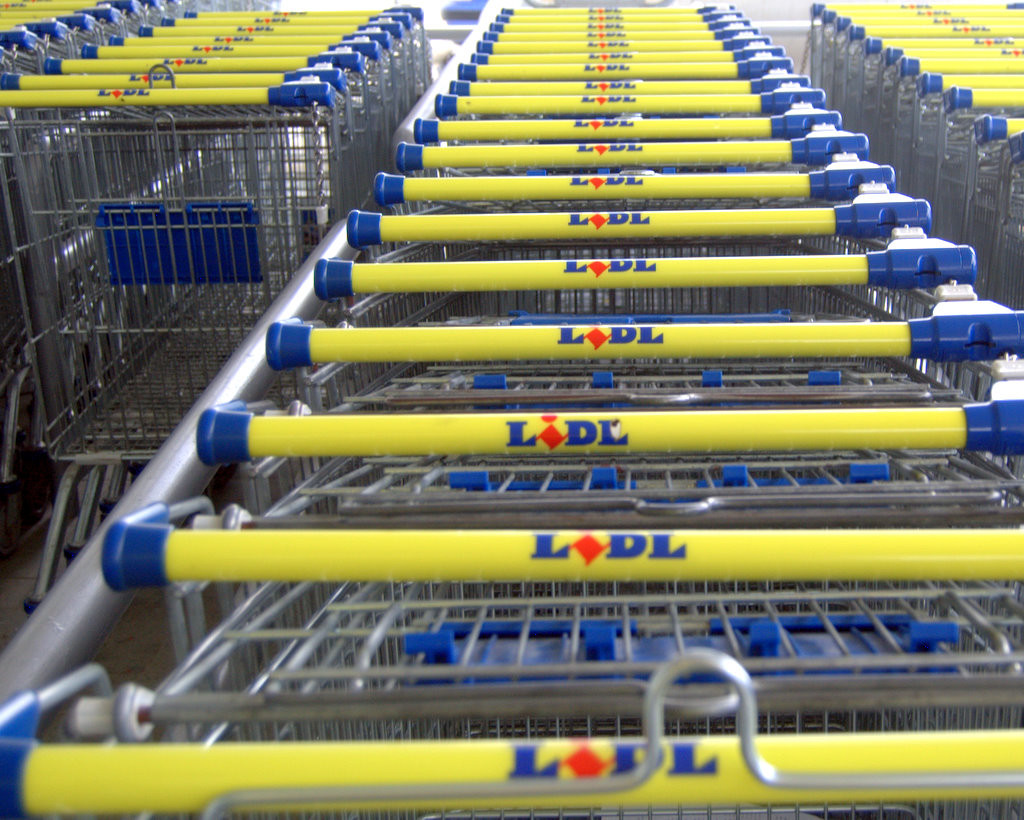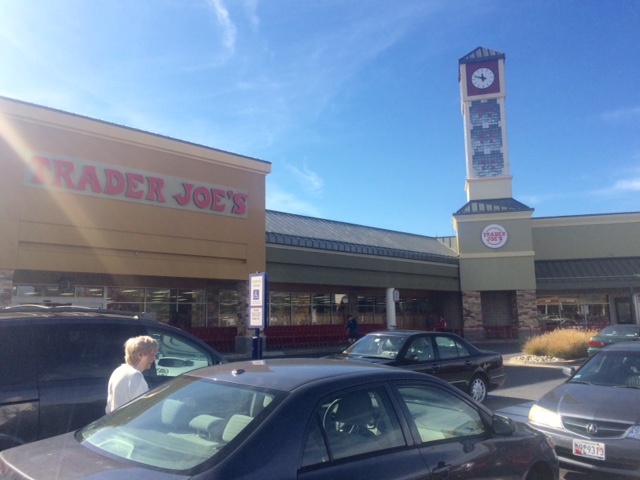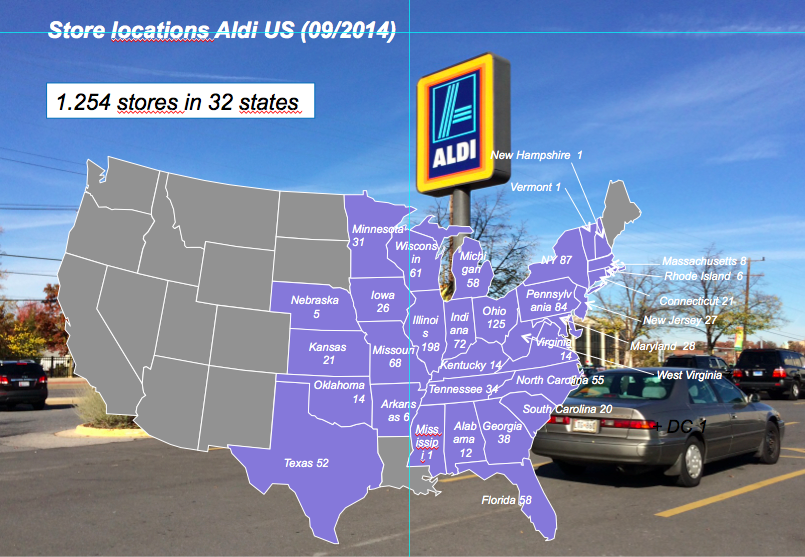
I’ve already discussed Aldi in the United States. In another recent post, I talked about the German discount grocer Lidl and its plans to expand in the States. Lidl is the largest chain of the Schwarz Group, one of the Top 10 retailers worldwide. At the same time, Lidl is also Aldi’s main competitor in Germany and Europe. Here are 5 reasons why Lidl could succeed in the States.
Both Aldi and Lidl sell their products in cardboard delivery boxes and only accept cash or debit payments. Service is not a main concern at either store. Efficient processes are their focus to keep prices low. Similarly, both Lidl and Aldi sell high-quality products. At least in Germany, Aldi and Lidl are relevant for everybody.
Frontal attack in the US against Aldi
According to Washington Top News (WTOP), Lidl found 2 locations for its first stores in the United States. The new stores are located in Prince George’s County, near several Aldi locations. Both proposed Lidl stores are under 5 miles away from an Aldi store, making this expansion an obvious targeting of their competitor (see map below).


5 reasons why Lidl could succeed in the States
How big can Lidl get in the United States? After living in Germany for 20 years and also working with Aldi, I am familiar with both companies. Here are 5 reasons why Lidl could become successful in the States.
1. Bigger stores
This summer, Supermarket News announced that at 31,000 square feet (2.880 m2), the Lidl location in Bowie, MD, appears to be larger than the nearby Aldi. A typical Aldi store is usually about 15,000 square feet. In Germany, where both chains come from, these stores are similar in size. It seems that in the US, Lidl wants to offer more SKUs—and potentially more brands—than Aldi.
2. More brands
One difference between Aldi and Lidl in Germany involves their assortment policies. Lidl has always relied on more brands than Aldi. I would guess that Lidl USA will carry products at prices that are at least comparable to Wal-Mart’s and lower than the prices of standard supermarkets.
3. Freshly baked goods
About 6 years ago, Lidl and Aldi started to sell fresh breads and “Brötchen” (bread rolls). This was a huge success from the beginning. Focus, a weekly German magazine, reported last Sunday that since this initiative, many local bakeries closed because they could not compete with Lidl and Aldi.
Don’t misunderstand me: there are no bakeries inside these stores. Instead, both chains have adopted an all-in-one baking-vending model. I can’t imagine that Lidl will start right away by selling fresh breads. US culture does not emphasize bread as much as German culture.
However, why not offer bagels and pretzels? Lidl has the know-how for baking Bretzel (which is what a pretzel is called in Germany), and baking in the store has a major impact on the shopping experience. Imagine a fun new supermarket smelling like homemade bread. Lidl and Aldi didn’t anticipate the effect on the customers, but customers often enjoy warm bakery smells while shopping. Additionally, buying bread at these discount stores was nearly 70% cheaper than purchasing bread at a bakery.
4. More Advertising
Lidl is usually more promotional than Aldi. In February 2015, the company started an image campaign on German television. In the UK, Lidl spent around $30 million in advertising in 2015. In the US, Lidl will probably not start with TV ads immediately, but I expect inserts in local papers, probably online advertising, and some kind of sales promotion.
5. Salaries above average
Supermarket News announced that salaries at these new Lidl stores will be above average. Considering the low customer-service level at the German rival Aldi, it seems to me to be a good idea to pay employees better. Better pay translates to higher employee satisfaction, which leads to higher engagement in the store, which creates more satisfied customers.
In your experience, what other factors will help Lidl to become successful in the US? Share in the comments!
Photo credit by Robert Wallace





I am an American from Florida, who has lived in Germany for a couple of decades, but have a house in West Palm Beach and travel often back to the States.
Over the last few years, competitors such as Winn Dixie have been largely driven out of the Florida Market by Publix and Wallmart. I welcome Aldi into the market, and I hope that Lidl follows. In other markets in the South, the consumers often only have Kroger and Wallmart. The States also have Costco, which is the American equivalent to Metro, but not all Americans (like Germans) have access. The ant-competive behavior of of the large grocery chains should be attacked. Aldi and Lidl have a very good chance in the States. I wish them well.
Thank you for sharing, Craig.
I find quality to be similar of the US Aldi products. The selection is certainly bigger and better in Germany – and that seems to mainly be of the “higher” end / quality products. US Aldi does a good job though of the “Deutsche Küche” German specialty items, which are very authentic. Also, many of the chocolates are identical 🙂
I know that, when possible, Aldi works with its German suppliers. And in Germany, Aldi Nord/North and Süd/South (for details check my former post http://www.howtoguide.org/aldis-success-in-the-us/) have merged their purchase departments. I would say that they work also together in the States. At least a couple of imported products are quite similar: the small sausages for example, or actually the French chocolate truffles.
Very interesting Catherine, I will follow-up and see what Lidl will accomplish in the US.
Unfortunately the Lidl quality here in France is much lower than in Germany (same for Aldi).
Nathalie H, mother of a little Caribean princess
I will let you know!